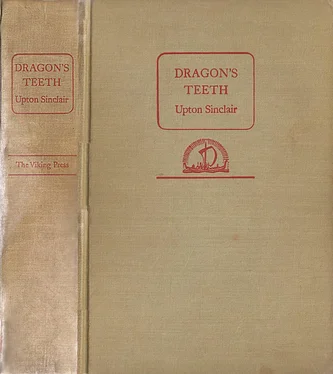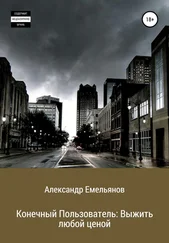Пользователь - o 3b3e7475144cf77c
Здесь есть возможность читать онлайн «Пользователь - o 3b3e7475144cf77c» весь текст электронной книги совершенно бесплатно (целиком полную версию без сокращений). В некоторых случаях можно слушать аудио, скачать через торрент в формате fb2 и присутствует краткое содержание. Жанр: Старинная литература, на русском языке. Описание произведения, (предисловие) а так же отзывы посетителей доступны на портале библиотеки ЛибКат.
- Название:o 3b3e7475144cf77c
- Автор:
- Жанр:
- Год:неизвестен
- ISBN:нет данных
- Рейтинг книги:4 / 5. Голосов: 1
-
Избранное:Добавить в избранное
- Отзывы:
-
Ваша оценка:
- 80
- 1
- 2
- 3
- 4
- 5
o 3b3e7475144cf77c: краткое содержание, описание и аннотация
Предлагаем к чтению аннотацию, описание, краткое содержание или предисловие (зависит от того, что написал сам автор книги «o 3b3e7475144cf77c»). Если вы не нашли необходимую информацию о книге — напишите в комментариях, мы постараемся отыскать её.
o 3b3e7475144cf77c — читать онлайн бесплатно полную книгу (весь текст) целиком
Ниже представлен текст книги, разбитый по страницам. Система сохранения места последней прочитанной страницы, позволяет с удобством читать онлайн бесплатно книгу «o 3b3e7475144cf77c», без необходимости каждый раз заново искать на чём Вы остановились. Поставьте закладку, и сможете в любой момент перейти на страницу, на которой закончили чтение.
Интервал:
Закладка:
elevator and other plants were running only three days a week. The workers were living on
their savings if they had any; they were mortgaging their homes, and losing their cars and
radio sets because they couldn't meet installment payments. There were a couple of thousand
families entirely destitute, and most of them were Budd workers, so it was a strain upon the
consciences and pocketbooks of all members of the ruling family. Esther was working harder
than even during the World War; she was chairman of the finance committee of the town's soup
kitchens and children's aid, and went about among the women's clubs and churches telling
harrowing stories and making the women weep, so that private charity might not break down
entirely.
That was a crucial issue, as her husband told her. If America was forced to adopt the British
system of the dole, it would be the end of individual initiative and private enterprise. Robbie
seemed to his son like the anchor-man of a tug-of-war team, his heels dug into the ground, his
teeth set, the veins standing out purple in his forehead with the effort he was making to keep
his country from moving the wrong way. Robbie had been down to Washington to see
President Hoover, his hero and the captain of his team. The Great Engineer was literally
besieged; all the forces of disorder and destruction—so he considered them and so did Robbie—
were trying to pry him from his stand that the budget must be balanced, the value of the dollar
maintained, and business allowed to "come back" in due and regular course.
The cities and the counties, nearing the end of their resources, were clamoring for Federal
aid; the returned soldiers had organized to demand a bonus for the services they had rendered
overseas while the business men at home were filling their pocketbooks. So the agitators
charged, frothing at the mouth, and they had forced their bill through Congress over the
President's veto. Poor Herbert went on making speeches about the American system of "rugged
individualism"; it was heartening to him to have a solid business man, one who had been an oil
man like himself, come in and tell him that he was saving civilization.
Esther, of course, had to believe her husband; she told all the club ladies and church ladies
that they were saving civilization, and they put in their dimes or their dollars, and gathered
together and knitted sweaters or cooked and served hot soup. But every slump in Wall Street
threw more men out of work in Newcastle, and the ladies were at their wit's end. When Irma
wrote a check for five thousand dollars for the children, tears of gratitude ran down the cheeks
of Lanny's stepmother. He had given her great sorrow in years past, but now his credit rating
was triple-A. Even his Pinkness had been made respectable by the crimson hues of Bess,
concerning whom the mother inquired with deepest anxiety.
The Newcastle Country Club was giving a costume dance for charity. You paid twenty-five
dollars for a ticket, and if you weren't there you were nobody. Irma and Lanny had to drive to
a near-by city, since everybody who knew how to sew in Newcastle was already at work on
costumes. But it was all right, for that city likewise had its smokeless factory chimneys. Several
women worked day and night, and as a result the visiting pair appeared as a very grand
Beatrice and Benedick in red-and-purple velvet with gold linings. A delightful occasion, and
when it was over, Irma and Lanny presented the costumes to the country club's dramatics
committee, for Irma said that if you folded them and carried them in the car they'd be full of
creases and not fit to use again.
VI
Not much fun visiting a factory town in times like these. But it was the Budd town, and in
prosperous days everybody had been cordial to the young couple and their friends, even the
Jewish ones. So now it was necessary to stay, and give sympathy and a little help, and have
receptions held in their honor, and shake hands and chat with innumerable Budds—not even
Lanny could remember them all, and had to "bone up" as if it were for a college examination.
Also they played golf and tennis at the country club, and swam and went sailing in delightful
June weather. The countryside put on a show of wild roses, and all nature told them not to
worry too much, that life was going on.
Also they had to pay a visit to the president of Budd Gunmakers. The old man had told Lanny
that he would probably never see him again; but here he was, still holding on, still running the
company by telephone. His hands shook so that it was painful to watch; his cheeks hung in
flaps so that he seemed to have twice as much yellow skin as was needed to cover his shrinking
form; but he was the same grim Puritan, and still questioned Lanny to make sure he had not
forgotten his Bible texts. He had heard about Baby Frances, of course, and said he had carried
out his promise to put her in his will, though he didn't know if he really had any property any
more, or if Budd stocks would be worth the paper. He pinned the pair down on whether they
were going to have another try for a son, and Irma told him they were leaving it to the Lord;
this wasn't so, but Lanny didn't contradict her, and afterward she said it would have been a
shame to worry that old man so close to the grave.
Everybody knew that he couldn't hold on much longer, and there was an underground war
going on for control of the company; a painful struggle between Robbie and his oldest brother
Lawford, that silent, morose man who was in charge of production, and whom Lanny and Irma
saw only when they attended the First Congregational Church. The old grandfather had not
said whom he wished to have succeed him, and of course nobody liked to ask him. For some
time Lawford had been seeking out the directors and presenting his side of the case, which
involved telling them of the blunders which Robbie had committed—or what Lawford
considered blunders. Naturally, this made it necessary for Robbie to defend himself, and it was
an ugly situation. Robbie thought he had the whip hand so far. His father had renewed his
contract as European sales representative for another five years, so if Lawford got the
presidency they'd have to pay a pretty price to buy Robbie out.
VII
The business situation in Germany went from bad to worse. Robbie received a letter from
Johannes, saying that it looked like the end of everything. Foreign loans were no more, and
Germany couldn't go on without them. Johannes was taking more money out of the country,
and asking Robbie's help in investing it. Robbie told his son in strict confidence—not even Irma
was allowed to know —that President Hoover had prepared a declaration of a moratorium on
international debts; he was still hesitating about this grave step; would it help or would it cause
more alarm? The French, who had not been consulted, would probably be furious.
The declaration was issued soon after the young couple had returned to Shore Acres, and the
French were furious, but the Germans were not much helped. In the middle of July the great
Danat Bank failed in Berlin, and there was terror such as Lanny had witnessed in New York.
Chancellor Briining went to Paris to beg for help, and Premier Laval refused it; France was
now the strongest European power financially, and was sitting on her heap of gold, lending it
only for the arming of Poland and her other eastern allies —which were blackmailing her without
Читать дальшеИнтервал:
Закладка:
Похожие книги на «o 3b3e7475144cf77c»
Представляем Вашему вниманию похожие книги на «o 3b3e7475144cf77c» списком для выбора. Мы отобрали схожую по названию и смыслу литературу в надежде предоставить читателям больше вариантов отыскать новые, интересные, ещё непрочитанные произведения.
Обсуждение, отзывы о книге «o 3b3e7475144cf77c» и просто собственные мнения читателей. Оставьте ваши комментарии, напишите, что Вы думаете о произведении, его смысле или главных героях. Укажите что конкретно понравилось, а что нет, и почему Вы так считаете.




